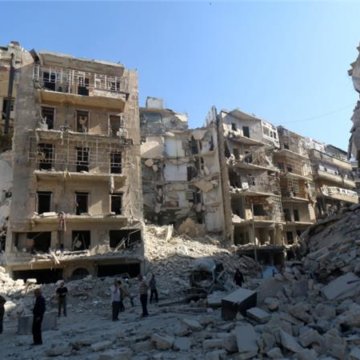- About
- Topics
- Story
- In-Depth
- Picks
- Opinion
- News
- Donate
- Signup for our newsletterOur Editors' Best Picks.Send
Read, Debate: Engage.
It does not take a miracle formular to stop the desperate flight of million of refugees coming from past war places like Afghanistan or present ones like Syria. Nip it in the bud! Yet, the solution - especially for Syria - seems to be complicated. Too many economic interests, too many political mistakes and way to far national sensitivities.
Tomorrow, Saturday morning at 0 o'clock (local time Damascus) a ceasefire is to enter in force in Syria. The Syrian regime and the High negotiations committee have agreed initially to comply with the cease-fire for two weeks. This committee represents the main Syrian opposition groups, yet the Al-Nusra Front allied with Al-Qaeda and the so-called Islamic State / Daesh are excluded from the agreement. Both groups are classified by the United Nations as terrorist organizations.
That also means, operations against Islamist terror groups will continue. Some commentators are skeptical about whether the weapons are really silent from Saturday on. Obama said that though there are “plenty of reasons for skepticism,” it could save lives if implemented. Others hold the hope of peace high.
How and if the casefire will work - nobody really knows. But after all what is going on in Syria is an indictment of the international community of states.
